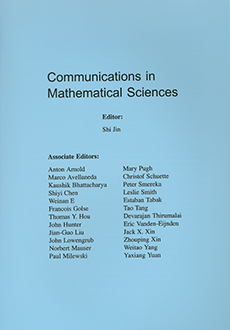Abstract
In this paper we generalize the iterated refinement method, introduced by the authors in a recent work, to a time-continuous inverse scale-space formulation. The iterated refinement procedure yields a sequence of convex variational problems, evolving toward the noisy image.
The inverse scale space method arises as a limit for a penalization parameter tending to zero, while the number of iteration steps tends to infinity. For the limiting flow, similar properties as for the iterated refinement procedure hold. Specifically, when a discrepancy principle is used as the stopping criterion, the error between the reconstruction and the noise-free image decreases until termination, even if only the noisy image is available and a bound on the variance of the noise is known.
The inverse flow is computed directly for one-dimensional signals, yielding high quality restorations. In higher spatial dimensions, we introduce a relaxation technique using two evolution equations. These equations allow fast, accurate, efficient and straightforward implementation. We investigate the properties of these new types of flows and show their excellent denoising capabilities, wherein noise can be well removed with minimal loss of contrast of larger objects.
Citation
Martin Burger. Guy Gilboa. Stanley Osher. Jinjun Xu. "Nonlinear inverse scale space methods." Commun. Math. Sci. 4 (1) 179 - 212, March 2006.
Information





